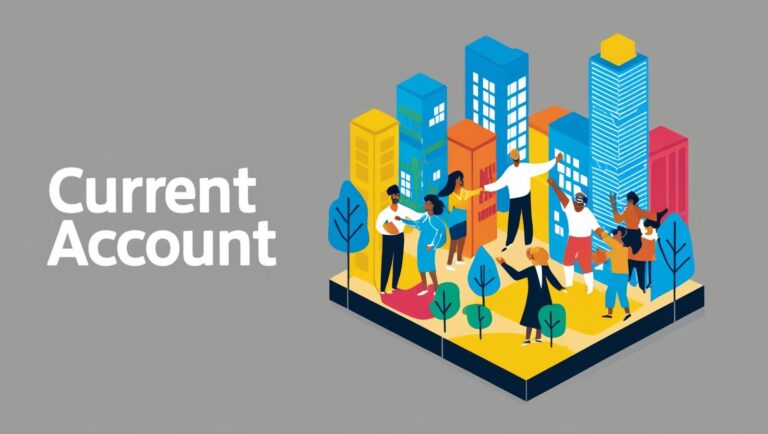Mastering Financial Knowledge for a Secure Future
Introduction
In today’s world, managing money seems like an elusive skill for many people. Many people face financial challenges. These include paying off credit card debt, living paycheck to paycheck, and worrying about saving for the future. For most people, the root cause of these issues lies in a fundamental problem: a lack of financial education.
Imagine a life where you have a clear understanding of how money works. You know how to save, invest, and manage your expenses with ease. You’re able to plan for emergencies, retire comfortably, and make informed decisions about your financial future. It’s a scenario that many people wish they could achieve, but without the right financial knowledge, it often feels out of reach.
Financial literacy—the ability to understand and manage financial decisions—can be the key to unlocking this future. With the right skills and strategies, you can break free from financial stress and work toward long-term financial stability.
In this blog, we will look at the basics of financial literacy. We will share tips to improve your finances. We will also help you build a strong foundation for a secure financial future.
Whether you are new to managing your money or want to improve your financial skills, this guide will help you. It covers the key ideas you need to understand.
What is Financial Literacy and Why Does it Matter?
At its core, financial literacy is the ability to make informed and effective decisions about your money. It means understanding key financial concepts such as budgeting, saving, investing, credit management, and planning for retirement. Financial literacy is more than a buzzword. It is an important skill for modern life. Making good financial choices can greatly affect your quality of life and long-term stability.
According to the National Financial Educators Council, 60% of Americans lack basic financial literacy, a statistic that underscores the importance of improving financial education at every level. Without financial literacy, people are more likely to make poor financial decisions—whether it’s overspending on credit cards, failing to save for retirement, or taking on unnecessary debt. By improving your financial knowledge, you can avoid these pitfalls and start building a more secure future.
Why is Financial Literacy Important?
Being financially literate is critical for personal finance because it directly impacts the decisions you make in your day-to-day life. Whether it’s choosing a savings account, understanding how to use a credit card, or planning for retirement, financial literacy plays a key role in how you manage your finances.
Here are a few reasons why financial literacy is so important:
- Better Decision-Making: Financially literate individuals can make smarter choices when selecting financial products such as bank accounts, insurance, and investments.
- Achieving Financial Goals: With financial knowledge, you can set realistic goals for saving, investing, and debt repayment, and create a structured plan to achieve them.
- Debt Management: Financial literacy helps you avoid or manage debt effectively by understanding interest rates, fees, and the consequences of borrowing.
- Improved Security: With solid financial planning, you’ll be better prepared for unexpected life events, such as medical emergencies, job loss, or major repairs.
- Wealth Building: Knowledge of how to invest, save, and leverage compound interest allows you to grow your wealth over time.
By understanding how money works, you can start to make informed financial decisions that will lead to a more secure future.
Basic Financial Knowledge Everyone Needs
Building financial literacy starts with mastering a few essential concepts. These foundational principles serve as the bedrock of personal finance and are crucial for making informed decisions about your money.
1. Budgeting and Saving Techniques
When it comes to managing your money, budgeting is the first and most important step. A budget helps you track your income and expenses, ensuring that you’re living within your means and saving for the future. Creating a budget can be intimidating at first, but once you understand how it works, it becomes a powerful tool for managing your finances.
The 50/30/20 Rule One of the simplest and most effective budgeting methods is the 50/30/20 rule. This rule breaks down your income into three categories:
- 50% Needs: These are essential expenses like housing, food, utilities, and transportation.
- 30% Wants: These are discretionary expenses such as entertainment, dining out, and hobbies.
- 20% Savings: This portion is dedicated to savings, investments, and debt repayment.
By following this rule, you ensure that you’re living within your means while also setting aside money for both immediate needs and long-term financial goals.
Saving for Emergencies Another key component of financial security is having an emergency fund. An emergency fund is money set aside for unexpected expenses, like medical bills, car repairs, or job loss. Financial experts recommend having at least three to six months’ worth of living expenses in your emergency fund.
One easy way to build your emergency fund is by automating your savings. Set up automatic transfers to your savings account each month so that you’re consistently putting money away. By automating your savings, you make it easier to stay on track without having to think about it.
2. The Power of Compound Interest
Compound interest is one of the most powerful concepts in personal finance. It refers to the interest that accumulates not only on the original amount of money you invest but also on the interest that has been added to it. The key to maximizing the power of compound interest is starting early and contributing regularly.
How Compound Interest Works Let’s say you invest $100 every month into an account that earns a 5% annual interest rate. Over time, the interest you earn will be added to the balance of your account, and you’ll earn interest on the new, higher balance. This process repeats, causing your money to grow exponentially.
To illustrate this, consider the following example:
- If you save $100 per month at 5% annual interest for 10 years, your total investment would be $12,000. But with compound interest, your account could grow to around $20,000 by the end of the 10 years.
The earlier you start saving and investing, the more you can take advantage of compound interest. Even small contributions can add up significantly over time, which is why it’s important to begin saving as soon as possible, even if it’s just a small amount each month.
3. Understanding Credit Cards and Interest Rates
Credit cards are a useful financial tool, but they can also lead to significant debt if not managed properly. The key to using credit cards responsibly is understanding how they work, especially interest rates and how they compound over time.
How Credit Cards Work When you use a credit card, you’re essentially borrowing money from the card issuer. If you pay off your balance in full each month, you won’t pay any interest. However, if you carry a balance, you’ll be charged interest on the amount owed. Interest rates on credit cards can be quite high, often 15% or more, so carrying a balance can quickly lead to mounting debt.
Tips for Managing Credit Card Debt
- Pay off your balance in full each month to avoid interest charges.
- Make sure to pay on time to avoid late fees and damage to your credit score.
- Keep your credit utilization ratio (the amount of credit you’re using relative to your credit limit) low. Ideally, you should aim to use no more than 30% of your credit limit.
By managing credit cards effectively, you can avoid debt traps and maintain a good credit score, which will help you qualify for better financial products in the future.
4. The Time Value of Money
The time value of money is another fundamental financial concept that emphasizes the importance of saving and investing early. Simply put, money today is worth more than the same amount in the future due to its potential to grow over time.
Why Saving Early is Important Let’s say you invest $5,000 today and earn an annual return of 6%. After one year, you’ll have earned $300 in interest, giving you a total of $5,300. The longer you wait to invest, the less time your money has to grow. This concept is why it’s so important to start saving for retirement as early as possible—your savings will grow exponentially over time.
Advanced Financial Goals
Once you’ve mastered the basics, it’s time to move on to more advanced financial goals, such as planning for retirement and managing debt. These strategies require a deeper understanding of personal finance and the tools available to help you reach your goals.
1. Planning for Retirement Made Simple
Saving for retirement can be daunting, but it doesn’t have to be. The key to a comfortable retirement is starting early and contributing regularly. There are many retirement savings options available, including 401(k)s, IRAs, and Roth IRAs. Each of these accounts offers unique benefits, such as tax advantages or employer matching contributions.
The Importance of Starting Early The earlier you start saving for retirement, the more your money can grow through the power of compound interest. For example, someone who starts saving $200 per month at age 25 will have more money at retirement than someone who starts saving the same amount at age 35.
Diversifying Your Investments Diversification is a key strategy in reducing risk and maximizing returns in retirement accounts. Rather than putting all your money into one type of investment, such as stocks, you can spread it across a variety of asset classes, including bonds, real estate, and international stocks.
2. Managing and Avoiding Debt
Debt is a major obstacle for many people, but with the right strategies, you can manage it effectively and even avoid it altogether. One effective method for managing debt is the debt snowball method, where you focus on paying off your smallest debts first, gaining momentum as you move on to larger ones.
Avoiding Debt The best way to avoid debt is to live within your means. Create a realistic budget and prioritize your needs over your wants. Additionally, be cautious when taking on debt—make sure you understand the terms, interest rates, and repayment schedule before borrowing money.
Practical Tips to Enhance Financial Literacy
To improve your financial literacy, consider the following practical steps:
- Take online courses in financial literacy (many are available for free or at a low cost).
- Read books and blogs on personal finance to expand your knowledge.
- Use apps like Mint or YNAB to track your spending and savings.
- Speak to a financial advisor to get personalized advice and guidance.
Building a Financially Secure Future
Creating a financially secure future starts with setting clear, achievable goals. Whether you’re saving for a home, building an emergency fund, or planning for retirement, having a plan in place will keep you on track.
Conclusion
Financial literacy is the key to unlocking a secure financial future. By mastering budgeting, saving, managing credit, and investing, you can make informed decisions that will help you achieve your financial goals. Start today by learning the basics and applying these concepts to your own life. The more knowledgeable you are about your finances, the more confident and empowered you’ll feel in securing your future.







